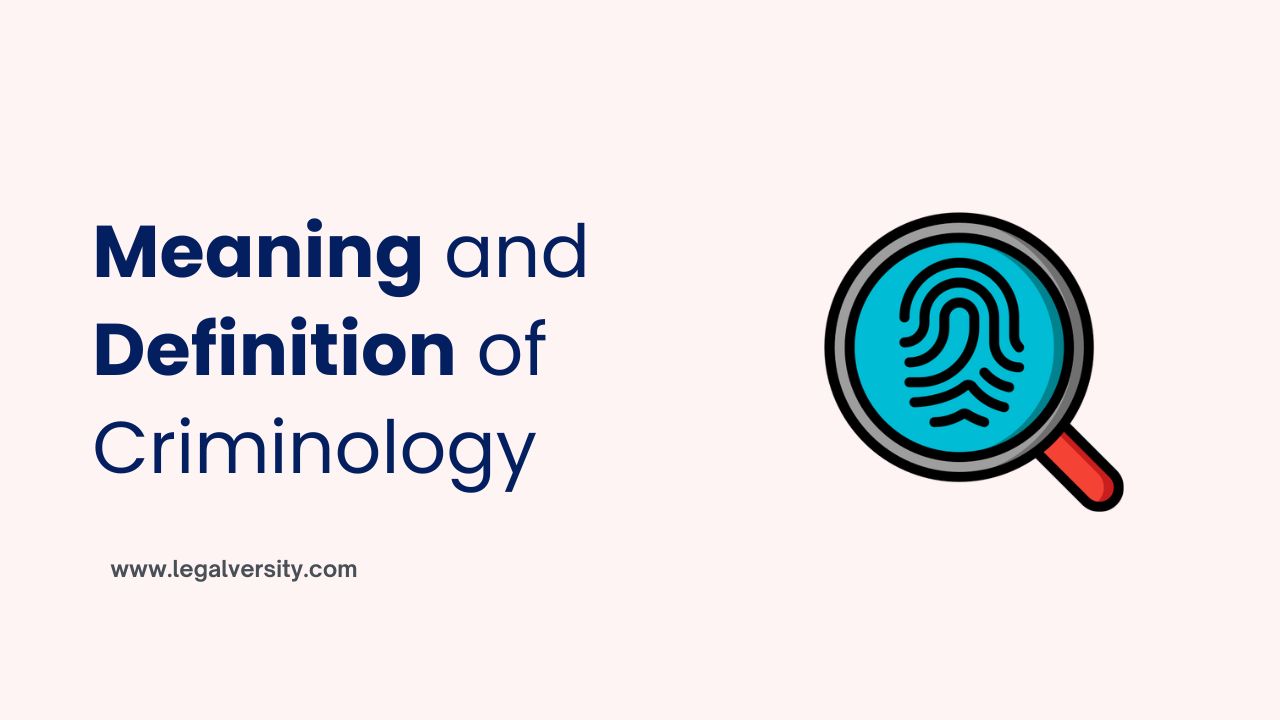Criminology is the branch of sociology. It is the scientific study of crime, including its
causes, responses by law enforcement, and methods of prevention. It is a sub-group of sociology, which is the scientific study of social behaviour.
Meaning of Criminology
The literal meaning of Criminology is “the scientific study of crime and criminals”.
Definition of Criminology
“Criminology” is derived from the Latin word ‘crimen’ which means “accusation”, and the transliterated Greek word ‘logia’ which denotes “the study of,” therefore the study of crime is called Criminology.
Understanding Criminology
Criminology is the integrated, multidisciplinary study of the causes, predictions, and
control of crime and other harmful behaviour constituting a breach of societal norms at a local, national, or international level. There are many fields of study that are used in the field of criminology, including biology, statistics, psychology, psychiatry, economics, and anthropology.
In 1879 Topinard defined criminology as a science which researches committed
criminal acts. Criminology is a set of knowledge’s regarding delinquency and crime as a social phenomena. Criminological objective is to develop set of principles and knowledge’s regarding application of law, crime prevention and repression.
Criminology is described as a scientific discipline which studies crime, response of the society on criminal acts, criminal behaviour, criminals, and execution of sanctions, crime prevention, crime repression and law enforcement. Criminology researches variety of sociological, biological and psychological causes of crime and other non-legal aspects of crime.
Focus of Criminology
The subject of Criminology focuses on the following:
- Frequency of crimes
- Location of crimes
- Causes of crimes
- Types of crimes
- Social and individual consequences of crimes
- Social reactions to crime
- Individual reactions to crime
- Governmental reactions to crime
See these as well:

